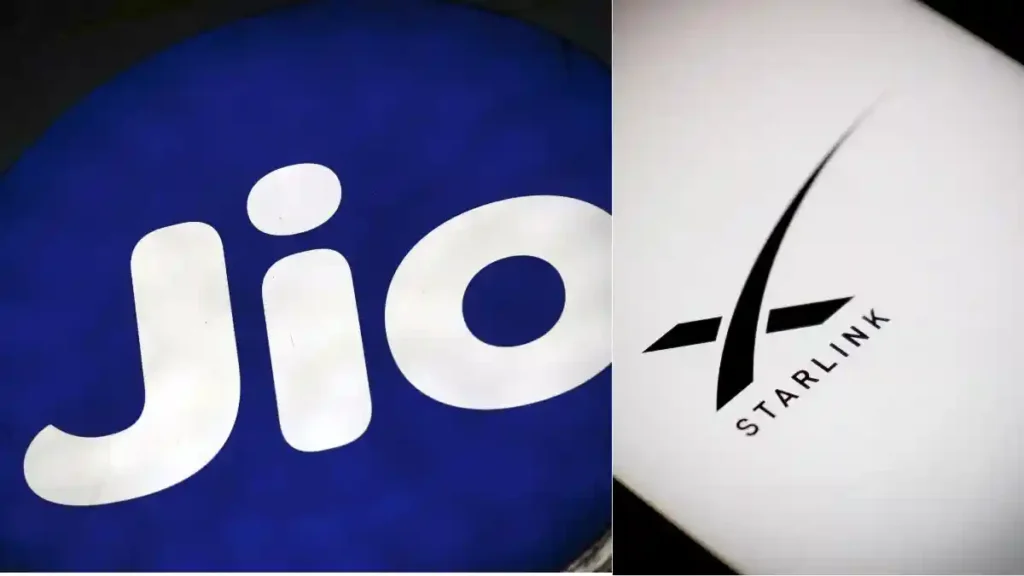Reliance Jio announced on March 12 that it has signed an agreement with SpaceX, the company founded by Elon Musk, to bring Starlink’s satellite internet services to India. This announcement came just a day after Jio’s competitor, Bharti Airtel, made a similar deal.
However, before Starlink can officially launch in India, SpaceX needs approval from the Indian government to sell its services in the country. Once approved, Jio and SpaceX will work together to see how Starlink’s satellite technology can improve Jio’s existing services while also offering Starlink directly to Indian customers and businesses.
As part of this partnership, Jio will sell Starlink services through its physical stores and online platforms. Customers will be able to buy Starlink equipment in Jio’s retail outlets, and Jio will also provide installation and activation support for Starlink users.
This collaboration is expected to greatly improve internet access across India, particularly in rural and remote areas. Jio is currently the world’s largest mobile operator in terms of data traffic, while Starlink operates the largest network of low Earth orbit (LEO) satellites. Together, they aim to offer high-speed and affordable broadband to millions of Indians who currently lack reliable internet access.
Mathew Oommen, the Group CEO of Reliance Jio, expressed his enthusiasm about the partnership. He emphasized that Jio’s priority is to ensure that every Indian, no matter where they live, has access to fast and affordable internet. “Our collaboration with SpaceX to bring Starlink to India strengthens our commitment and marks a transformative step toward seamless broadband connectivity for all,” he said.
He further stated that by integrating Starlink’s satellite network into Jio’s broadband services, the company will be able to expand its reach and provide more reliable internet services. This move aligns with India’s growing dependence on digital technology, artificial intelligence, and cloud-based services.
Jio is committed to making reliable internet available to businesses, small and medium enterprises, and communities across India. The introduction of Starlink will complement Jio’s existing services, such as JioAirFiber and JioFiber, by providing connectivity in difficult-to-reach areas where traditional broadband services struggle to function.
Apart from internet services, Jio and SpaceX are also exploring other ways to collaborate. They plan to use their combined technological infrastructures to further develop India’s digital ecosystem and improve connectivity services across the country.
Gwynne Shotwell, President and Chief Operating Officer of SpaceX, praised Jio’s efforts to improve internet access in India. “We applaud Jio’s commitment to advancing India’s connectivity. We are looking forward to working with Jio and receiving authorization from the Government of India to provide more people, organizations, and businesses with access to Starlink’s high-speed internet services,” she said.
However, Starlink still faces a major hurdle before it can officially operate in India. The Indian government has not yet granted SpaceX the necessary regulatory approvals. Both the Indian space regulator, IN-SPACe, and the Department of Telecommunications (DoT) need to authorize Starlink’s operations before services can be launched.
Back in November, a report by Moneycontrol stated that SpaceX had agreed to meet India’s data security and localization requirements, which had been a sticking point in earlier discussions. This agreement increases the chances of Starlink gaining approval to operate in the country.
Meanwhile, other satellite internet providers are already making progress in India. Companies such as Eutelsat OneWeb and Jio’s joint venture with SES have already obtained GMPCS (Global Mobile Personal Communication by Satellite) licenses and approvals from IN-SPACe.
Starlink currently operates a network of over 6,000 low Earth orbit satellites, providing internet services to many parts of the world. Amazon’s Kuiper project is also planning to enter the satellite internet market by launching 3,236 satellites starting in early 2025.
In India, there is still debate over how the government should allocate satellite communication spectrum. The Indian government has stated that spectrum for satellite communication will be assigned through an administrative process but with a fee structure. However, major telecom operators like Jio and Bharti Airtel are pushing for the spectrum to be allocated through an auction instead.
The Telecom Regulatory Authority of India (TRAI) is expected to release details on the pricing structure for satellite communication spectrum soon. These details will help determine how companies like Starlink, OneWeb, and Kuiper will operate in the Indian market.
India’s space sector is growing rapidly, with projections that the country’s space economy will reach $44 billion by 2033. This would give India an 8% share of the global space market, a significant increase from its current 2% share.
In conclusion, the partnership between Jio and SpaceX is a major step toward improving internet connectivity in India, especially in rural areas. However, regulatory approvals remain a key challenge for Starlink’s entry into the Indian market. If the government grants the necessary permissions, this collaboration could bring high-speed satellite internet to millions of Indians, revolutionizing the country’s digital landscape.

